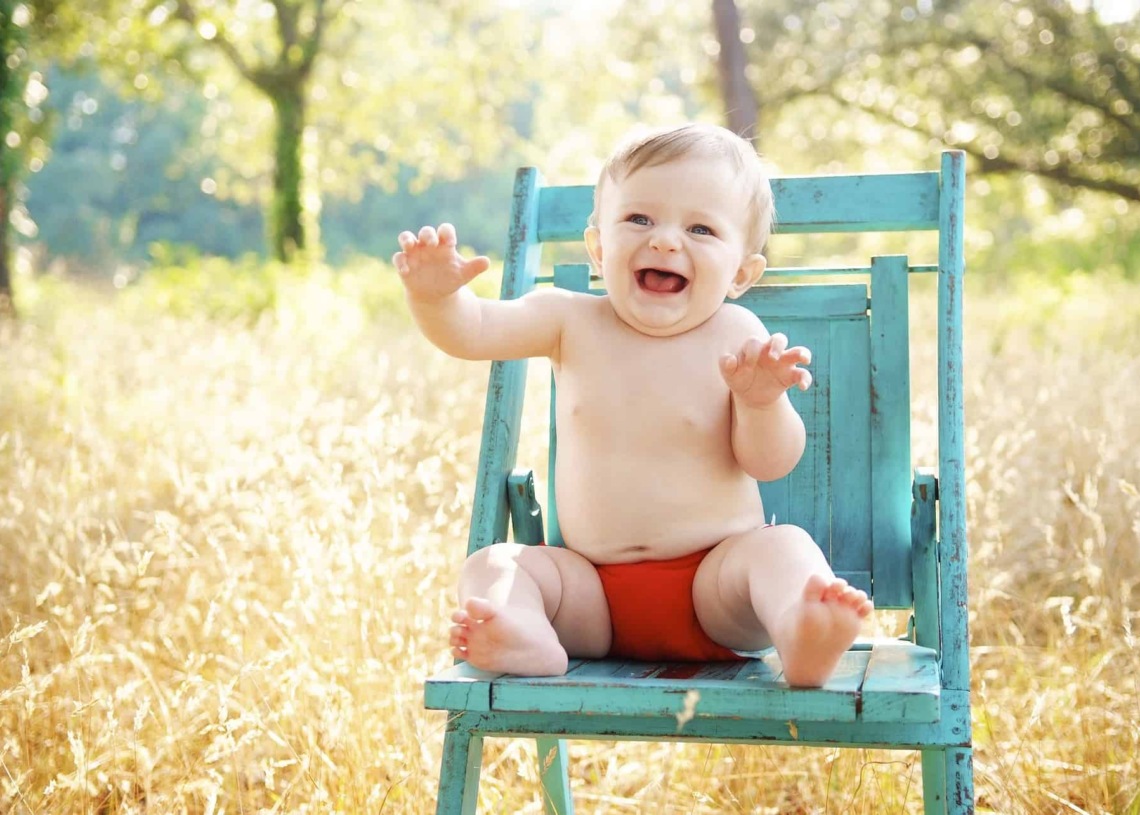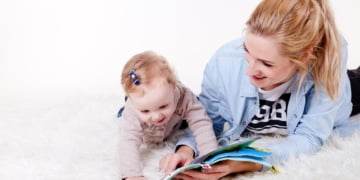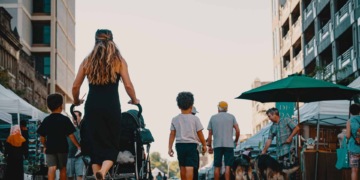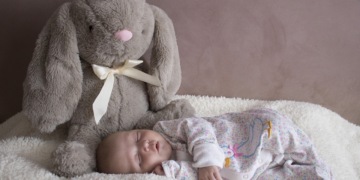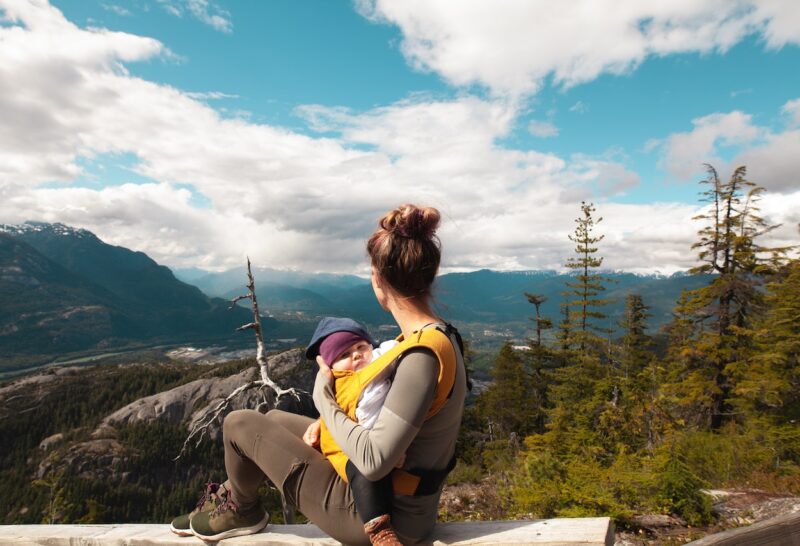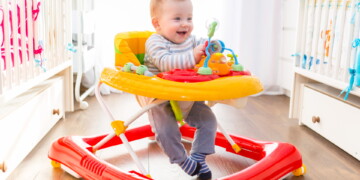Environmental Effects on Newborns
It can be difficult to take care of a baby in hot weather, and it’s typical for parents to worry that their newborn is overheating. Unless they become overheated, healthy, thriving babies who are adequately hydrated often have little trouble controlling their body temperature.
For the first few weeks and months, it’s crucial to be cautious of your surroundings and the people you meet when you’re out in public in order to prevent exposure to diseases and keep your newborn safe and healthy.
Can You Bring the Baby Outside?
For most new parents, and especially first-time parents, deciding when to take the baby out in public and around others for the first time is a crucial and perhaps anxiety-provoking matter. The issue is that because infants’ immune systems are still developing, they are unable to fend off or resist illness.
Most pediatric health professionals agree that as long as parents take a few simple safety measures, infants can be carried out in public or outside immediately away.
Both parents and infants benefit from being outside, especially in nature. Health advantages including vitamin D exposure as well as mood and energy increases are provided by sunlight and fresh air. Follow these few straightforward recommendations when taking a baby out:
Protect Your Baby from Mosquito Bites
When mosquitoes are most active, from twilight till dawn, wear long sleeves and pants. When your baby is outside, use a baby mosquito repellent for your baby. Always heed the instructions on the label.
Empty any standing water from buckets, flowerpots, gutters, pool covers, pet dishes, tires, and birdbaths to help limit the number of mosquitoes near your home.
Try to Prevent Direct Sun Exposure for Your Newborn.
We all need vitamin D, but new newborns more, and the sun gives it. But infants are also more prone to sunburn. Use a cover or sunscreen after only about 15 minutes of exposure to the sun.
To find out how much sun is safe for your baby, discuss their health with your doctor.
Keep Your Baby Away from Germy Hands and Faces
This is crucial and clear advice to heed. Even while you won’t always be able to tell who is ill, it’s generally a good idea to keep your baby’s hands, face, and mouth away from other people’s hands and faces.
Additionally, it’s generally a good idea to avoid letting strangers hold or touch your infant. You can still be selective when it comes to family members. Hopefully, if a family member is ill, they won’t naturally ask to hold the infant. Anytime someone asks to hold the infant, you have the right to respectfully but firmly no.
Consider The Temperature
Avoid dressing your baby inappropriately for the weather. Babies are frequently wrapped up by parents and grandparents, but depending on the weather. It may not be necessary and may even make the baby overheat.
Your baby should be dressed in as many layers as you are, and a blanket should be included just in case.
It takes a combination of common sense, gut feeling, and expert advice to properly care for a newborn.
Your recommendations for taking your baby out in public may alter if your baby has special medical needs, and it might even be absolutely necessary for your baby’s health to stay away from public places for a certain amount of time.
To make the best option based on the available data, do your research, apply common sense, and consult the pediatrician.
What is a Baby’s Safe Temperature?
When the heat index is above 90 degrees Fahrenheit, the American Academy of Pediatrics (AAP) advises parents to keep babies inside for short periods of time.
Babies can rapidly become overheated when exposed to the outdoors for a long time on particularly hot days.
Because babies do not generally sweat, they are not as good at cooling their bodies as adults are. Furthermore, babies are unable to communicate their discomfort or overheating to you.
Depending on how your baby is feeling from the heat, take breaks every 15 to 30 minutes or earlier.
Examine the local heat index before scheduling any summertime outside activities with your newborns. When you do spend time outside, you can protect your newborn by taking a few easy precautions.
How to Keep Your Baby Cool in Summer?
Follow these instructions to keep your kid cool while spending time outside if the heat index is above 75 or 80 degrees Fahrenheit.
Give them more liquid
Provide formula or breastmilk to keep babies hydrated. It’s normally advised to hold off on giving babies water until they are at least 6 months old. To stay hydrated and cool when playing outside, older babies and toddlers should consume water.
Give them extra time to rest
Infants may experience increased fatigue after spending time in the heat. Planning a time for babies to nap or recover after outside play might be useful.
Avoid going outside while it’s hot.
To avoid being outside during the hottest hours of the day, schedule your baby’s outings for early morning or late evening. To keep your infant cool when you’re outside, think about using a portable stroller fan.
Dress them lightly
Wear your baby in a single layer of a light-colored, breathable, moisture-absorbent material on warm days, like a cotton onesie or romper. Avoid synthetic textiles like polyester and nylon in favor of natural fibers like cotton and linen.
Maintain A Cool Environment for Your Baby
Keeping your baby’s surroundings cool will help keep them safe from the heat. For sleeping, pick the house’s coolest room. Close the drapes and make sure air can flow around the bassinet or cot to keep the heat out. Babies shouldn’t be left in a pram when dozing off since they get quite hot.
Put wet sheets or towels all around the bassinet or cot to cool the air right next to your infant as you cool them with damp cloths. Make sure they are not getting too cold by checking frequently. Lukewarm water should be used to bathe or sponge your newborn.
To keep the air moving, use a fan. Make sure your toddler can’t touch the fan and avoid pointing them directly in their direction. If your home lacks air conditioning or cannot be cooled, spend time in a library, shopping mall, movie theatre, or other public institution.
















